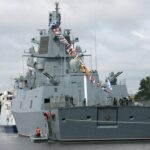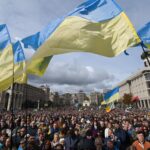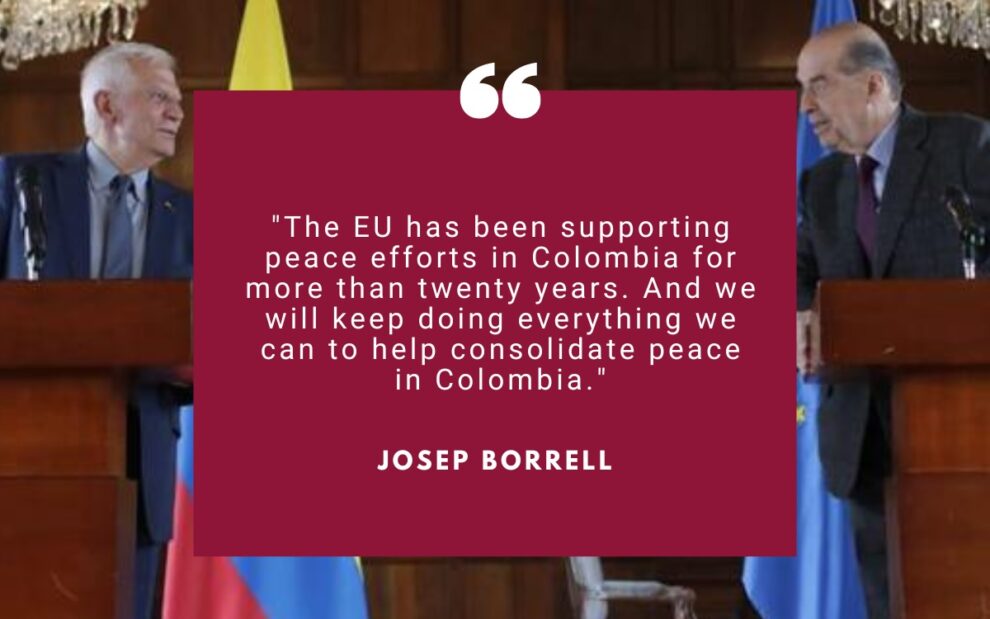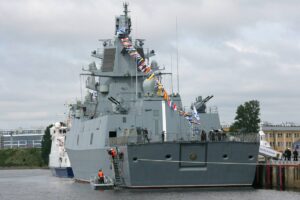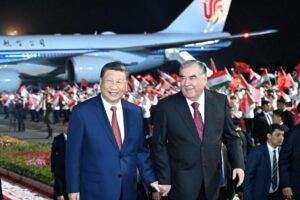Last week, I was in Colombia. This key country in Latin America, is currently trying to get out of 60 years of terrible violence. We must continue to support this peace effort and reinforce our bilateral relations. Strengthening EU-Colombia relations helps also to develop the cooperation between the EU and Latin America and the Caribbean on the eve of the EU-CELAC summit in July.
With its 50 million people, the third country after Brazil and Mexico, and its 1.1 million km2 surface, three times Poland or Germany, twice France or Spain, Colombia is a key country in Latin America. Colombia is also a bridge between South and Central America and between the Latin America that looks towards the Pacific and the one that borders the Atlantic and the Caribbean. However, for more than 60 years, this country has also been subject to a terrible violence that has claimed close to 250,000 lives and left more than eight million victims.
In Colombia, violence is rooted in a high level of inequality
This violence is deeply rooted in a very high level of inequality, especially in rural areas where the issue of land ownership is central. At the same time, violence sustains these inequalities by obstructing economic and social development. It is a vicious circle. Like in other Latin American countries, these inequalities are also connected to patterns of discrimination towards afro-descendant and indigenous communities. Taking advantage of this weakness of the State in many peripheral areas, the country has become one of the main global bases for cocaine production and trafficking and the “war on drugs” has registered little success in the last decades.
This state of affairs is well known, but it is quite another thing to be confronted directly with the victims – which I was, when I visited the photo exhibition “El Testigo” and the Benposta project, which takes in children and young people threatened by this violence, including being forcibly recruited into armed groups. When these young people tell you about their lives, the gravity of the situation becomes very tangible. I was impressed by the quality of the work done by Benposta, with hundreds of these young people in whole Colombia, with the support of the EU and several member states…
Violence has gone down in recent years
After the 2016 Peace Agreement between the Colombian government and the FARC, the main guerrilla movement, violence has decreased. However, it persists: other armed groups remain active in about a quarter of the Colombian territory. During my visit, Colombia’s High Commissioner for Peace, Danilo Rueda, gave us a comprehensive overview of the situation and the major difficulties that remain.
The implementation of the 2016 Peace Agreement permitted progresses on transitional justice and the reintegration of 13,000 FARC ex-combatants. It paved also the way of last year’s election of Gustavo Petro, a former member of a guerrilla movement, as Colombian President. However, significant parts of this agreement have not been implemented yet, especially concerning land reform.
President Petro has set the goal to reach “Paz Total”, or total peace, by negotiating with all existing armed groups and fully implementing the 2016 Agreement, including land reform. This goal has been an important part of my discussions with him and with members of his government.
The EU has been actively supporting peace efforts in Colombia for more than twenty years. This support was particularly important when the peace process was in danger of collapsing.
The EU has been actively supporting peace efforts in Colombia for more than twenty years. Since 2016, the EU has invested over €650 million, principally through the EU Trust Fund for Peace in Colombia, which allows combining support from the European Union and member states. There were plans to phase out this instrument but our Colombian interlocutors ask us to continue funding it. Eamon Gilmore, EU Special Representative for Human Rights, has been also the EU’s Special Envoy for the Colombian peace process since 2015. He will be in charge of supporting the new Colombia’s negotiations towards “Paz Total”. I asked him to travel to Colombia in two weeks’ time to discuss this support with the Colombian authorities.
Enthusiasm and scepticism about “Paz Total”
During my stay, I discussed the issue of violence and peace with many interlocutors: Afro-descendent and indigenous representatives, women and youth organisations, the Catholic Church, victims’ representatives and, of course, political leaders. I heard enthusiasm but also a fair amount of scepticism about the ability to achieve “Paz Total”, given the complexity of the task.
To succeed, Colombia will have to build an efficient state present throughout the whole country, not only in the form of police officers or soldiers but also in form of health, education, justice and other public services.
One element could help this endeavour: the price of coca and cocaine has been plummeting over the last few months, reducing the incentives to cultivate it. To succeed with “paz total”, Colombia will however have to build an efficient state capable of being present throughout the country – not only in the form of police officers or soldiers, but also in terms of health, education, justice and other public services. This requires a significant increase in public spending. With a tax to GDP ratio of only 20%, Colombia ranks 37 out of 38 OECD countries in 2021. Increasing public spending implies increasing taxes. Having had to carry out this kind of reform in Spain a few decades ago, I know how difficult it is. However, a functioning public sector is instrumental to consolidate peace. The EU will keep doing everything it can to help Colombia to achieve this.
The heavy impact of the Venezuelan crisis
The Venezuelan crisis was another topic that featured prominently during my visit. This crisis has a heavy impact on Colombia, which shares more than 2,000 kilometres of borders with Venezuela. On 25 April, I took part in the International Conference organised in Bogota by President Petro to help revive the Mexico negotiation process between the Venezuelan government and the Unitary Platform of the opposition. This topic also featured prominently in my subsequent bilateral exchanges.
2.6 million Venezuelan refugees live in Colombia, a figure equivalent to 23 million refugees in the European Union, 23 times the number of Syrian refugees received in Europe in 2015. I visited the Scalabrini migrant reception centre in Bogotá, supported by the EU and Germany. Here again, it is one thing to know the data and quite another to talk to a 25-year-old woman explaining that she had to leave Venezuela with her young child because she could no longer feed her family, how many days she had to walk to get to Colombia, and how many assaults and extortions she suffered on her way.
In response to the refugee crisis, the EU has supported Colombia with €58 million since 2015. During my visit, I announced a €10 million complementary action for integration of migrants. The Colombian society has shown exemplary solidarity facing this huge challenge, but the Venezuelan crisis contributes without doubt to Colombia’s difficulties and to the persistent violence in the border regions. Therefore, the resolution of this crisis is one of the conditions for the success of “Paz total”. In this area too, Colombia can count on the full commitment of the EU at its side.
The resolution of the Venezuelan crisis is one of the conditions for the success of “Paz total”. In this area too, Colombia can count on the full commitment of the EU at its side.
With President Petro, Vice-President Marquez and Fareign Minister Leyva, we also discussed extensively the EU-CELAC Summit, which will be held in July in Brussels. It will be the first one since 2015. We share the will to relaunch our biregional relations in this moment of geopolitical tensions, which call into question our capacity to solve global crises and produce the common goods that the world needs, particularly, as is felt strongly in Colombia, in the fight against climate change. The EU continues to defend a rules-based world order, while it is also agrees to adapt the multilateral system to new global realities. In this respect, we are very much in line with Colombia and the Latin American and Caribbean countries. Latin America and the EU do not want to return to the Cold War or to bloc politics, but to promote a pluralist vision of the international community based on rules that protect weaker states from interference and attacks by more powerful countries.
Latin America and the Caribbean have massively condemned the Russian aggression against Ukraine
In this context, we also discussed the Russian war of aggression against Ukraine. This war is taking place in Europe, but it affects the whole world. If Russia, a permanent member of the UN Security Council, were to succeed in invading Ukraine with impunity, many countries in the world would be vulnerable and threatened by more powerful neighbours. This blatant violation of the UN Charter was condemned again last February by an overwhelming majority of 141 UN member states. Among them are Colombia and 23 other of the 33 Latin American and Caribbean countries. In the so-called “Global South”, this is the region that has most widely condemned this aggression.
By doing so, Colombia and the LAC region have not chosen the “European side”, but the side of international law, of the UN Charter, of national sovereignty and territorial integrity. Of values that unite us in peaceful and respectful coexistence.
In the face of Russia’s aggression, the EU supports Ukraine with sanctions against Russia and by providing aid, including arms. These measures have sometimes been criticised in Colombia and Latin America. However, it was Russia’s aggression against one of the world’s main breadbaskets that drove up world food prices, not our sanctions, which were never directed against Russian agricultural exports. Our arms deliveries serve to enable Ukraine to defend itself and protect its territorial integrity. If Russia stops its aggression and withdraws from Ukrainian territory, the war is over. If we stop to deliver arms to Ukraine, the country will cease to exist. If something similar were to happen in the Latin America and the Caribbean, would the countries of the region not show solidarity with the country under attack and give it all possible support?
If Russia withdraws from Ukrainian territory, the war is over. If we stop to deliver arms to Ukraine, the country will cease to exist.
Like Latin Americans, all Europeans want peace, and first and foremost, the Ukrainians. But there can be no ambiguity or equidistance between the aggressor and the aggressed. To be lasting and not to threaten global stability in the future, this peace must be based on the UN Charter. It cannot endorse the acquisition of territory by brute force. The Russian war is avowedly an imperialist war.
We also discussed other bilateral matters: we proposed to strengthen our cooperation in the fight against deforestation as well as for the digital transition and to complement the trade agreement that we already have with a modernized cooperation agreement on environment and climate change, defence and security, police co-operation, science and technology, academic co-operation…
A strong plea for a relationship among equals
To conclude this mission, we held a seminar organised by the EU-LAC Foundation in Cartagena with a broad range of Latin American and European experts to exchange on the main issues for our two regions. At the start of this meeting, Colombian vice-President Francia Marquez, the first Afro-descendant elected leader of the country, made a strong plea for a relationship among equals.
From this seminar and my mission, I am bringing back to Brussels many ideas, examples and proposals to address the challenges and opportunities ahead of us in relations between the EU and Latin America and the Caribbean, also with view to preparing the EU-CELAC Summit next July.
Source : EEAS

